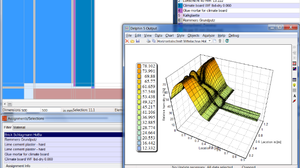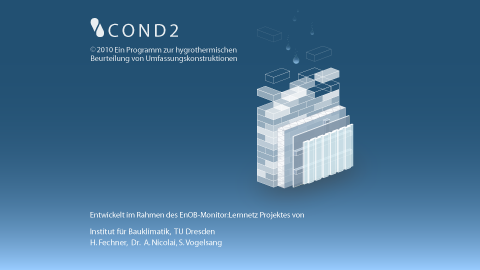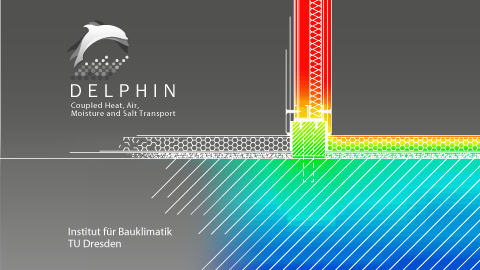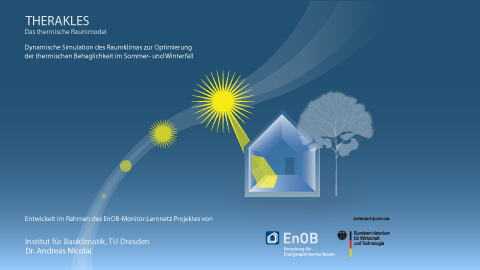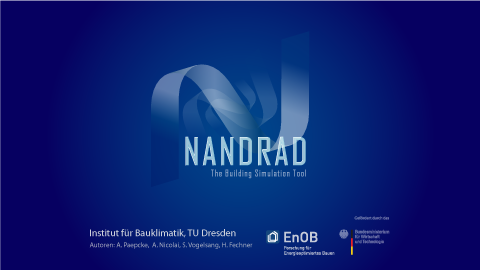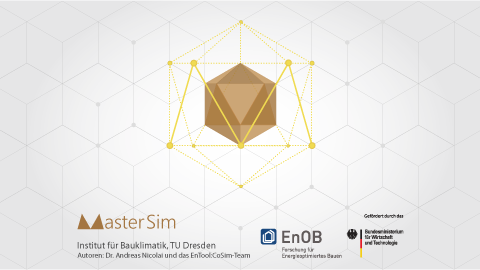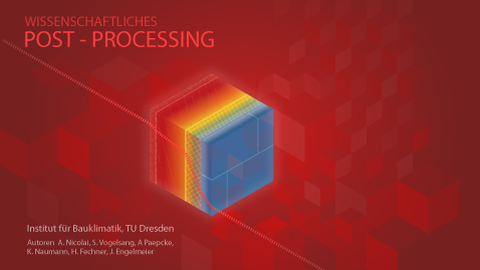Software
The IBK Institut für Bauklimatik (Building Climate Control, Technische Universität Dresden, Faculty of Architecture) investigates the theoretical basis of combined
heat, moisture, air, and salt transport in building materials, and also
researches other areas of building science. The modeling, simulation and
software group is working on the implementation of theoretical models
into simulation programs, and user-friendly software and calculation tools.
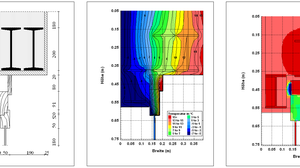
Software for research, teaching and engineering practice
At the Institute of Building Climatology we develop our own building physics software, which is used in research, teaching and for services (e.g. expert opinions). The basis for this is the continuous development of our models and calculation algorithms, supported by our building physics research and test laboratory. We convert the physical calculation algorithms and models into user-friendly programs to support the transfer of knowledge into practice.
Our simulation programs allow testing, parameterization and extension of the physical models. Furthermore, these programs help research institutions in their work, support students in learning about building physics and facilitate the work of civil engineers and architects working in building physics/climatology. Especially in the field of hygrothermal building component simulation, our software is one of the world's best, physically accurate and also user-friendly simulation programs. By means of the simulation, for example, a construction can be checked in the planning phase for possible condensation or thermal bridges, the causes of damage can be determined or a new material can be examined and optimized for possible fields of application and limits.
Since a few years the simulation of thermal comfort in rooms and the building energy simulation is a main focus at our institute.
Focal points in the development of our software are:
- correct description of physical relationships at the cutting edge of research
- intuitive and user-friendly programs, which facilitate efficient work through simple operation and support the introduction to the topics of building physics (e.g. students in teaching)
- use of modern technologies (e.g. wiki pages, task list, version control software, etc), which allows effective group work and leads to high-performance simulation tools
- national and international cooperation in the development of modules and program parts, which contribute to the increase of the offered software variety.
As a result, a number of programs have emerged in recent years that excel in many aspects.
- COND - practical dimensioning tool for design structures according to DIN 4108-3
- DELPHIN - advanced hygrothermal simulation tool for constructions and construction details and many other tasks from the field of hygrothermal simulation or heat and mass transfer in porous media,
- THERAKLES - thermal room model/one-zone simulation program for evaluation of comfort in summer and winter case, energy calculation and variant analysis
- NANDRAD - computational kernel for building energy simulation of multi-zone buildings and building complexes
- MASTERSIM - FMI simulation master for linked simulation of coupled simulation programs
- POSTPROC - Institute's own collaborative post-processing for all our simulation programs with focus on efficient analysis workflow and diagram/result presentation
- various tools and smaller tools round out our software suite, e.g. climate data editors, data converters, Python-based automation tools, etc.
In the area of research, calculation libraries and software platforms are developed in addition to simulation programs (e.g. the IntegratorFramework). The focus of our development work is always on the efficiency of our simulation programs, since we also want to enable practical simulation on engineering computers beyond university applications. Modern technologies like Krylov subspace methods and parallelization as well as low-level algorithm optimization are part of our numerical development work.
For further information about our software, support and training please refer to the Software-Website.

